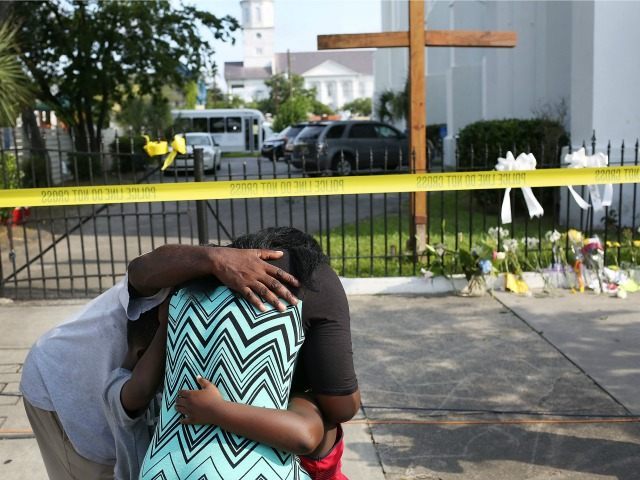Media efforts to downplay the distinctively Christian character of the forgiveness extended by Charleston families to shooter Dylann Roof is wrongheaded and unfair, argues a recent article in Christianity Today titled “Stop Explaining Away Black Christian Forgiveness.”
Writer Michael Wear protests efforts to water down the Christian content of Charleston forgiveness, and contends that the problem is that “media, racists, and liberal elites alike tend to treat African American Christianity as a cultural, not a theological, phenomenon.”
According to Wear, many attribute the behavior of committed Christian African Americans to their ethnicity rather than their faith, which makes the gesture too easy to dismiss. In forgiving Roof, he contends, the Charleston families were not expressing the values of their race, but faithfulness to their God.
Wear attributes his own faith to the witness of the black Christian community, which makes him particularly sensitive to efforts to undermine its power. “I am a Christian because of the black church and black faith. When I was far from God, it was the unashamedly Christian black culture, movies, and music of people like Lauryn Hill and Fred Hammond that introduced me to Jesus,” he wrote.
Though Wear doesn’t try to convince anyone else to forgive Roof, and even says that he doubts that he could do so, this doesn’t take away from the significance of what happened.
One of the church members who publicly forgave Roof was Nadine Collier, who told him, “You took something very precious from me, but I forgive you. It hurts me. You hurt a lot of people, but may God forgive you.”
Another, Anthony Thompson, appealed to Roof to repent. “Confess. Give your life to the one who matters the most, Christ, so he can change your ways no matter what happens to you and you’ll be okay.”
This, argues Wear, is explicit Christianity at work, and not any sort of feel-good liberalism or ethnic conditioning. In fact, he says, without Christian faith this forgiveness would “look utterly foolish.”
Yet this isn’t the way it is being portrayed. Wear says that one commentator, Hanna Rosin “seemed to suggest that black forgiveness was a legacy of white supremacy.”
Others, he said, ignored the forgivers altogether, turning the conversation to whether or not forgiveness provided an easy out to the public, “allowing whites to move on from the systemic injustices and racist doctrines that permeate much of our society.”
Roxane Gay’s op-ed in The New York Times, for example, sought to replace the spontaneous, faith-filled gesture of the black family members “with uncited references to ‘demands for forgiveness’ from ‘white people,’ and a universal declaration that ‘black people forgive because we need to survive.’”
Wear contrasts the reception of the Charleston display of mercy with that of the Amish community in Nickel Mines, Pennsylvania, which drew praise from religious and secular alike for their response to senseless, targeted violence. “What is new is the idea—invoked regarding black Christians in Charleston, not white Amish in Pennsylvania—that forgiveness might stymie social progress and disturb the social order and should therefore be withheld, at least publicly,” he said.
And while no one questioned whether the Amish forgiveness was the result of a mature faith, when it comes to the black conscience, “somehow obfuscation, critique, and rationalization are embraced as progressive.”
If the Charleston family members ascribed their forgiveness to their faith, Wear asks, is it right to insist that their willingness to forgive is a result of their race? “They did not forgive to express the values of their race or to represent the character of their country, but to be faithful to their God,” he wrote.
For those without faith, Wear acknowledges, this may make little sense, especially for those who have never personally experienced the forgiveness of God. “But that does not grant us the right to whitewash the motivation for the forgiveness we witnessed in Charleston,” he said.
We need to “take the family members seriously when they say it is a sincere, thought-out expression of their faith,” he wrote.
Follow Thomas D. Williams on Twitter @tdwilliamsrome

COMMENTS
Please let us know if you're having issues with commenting.